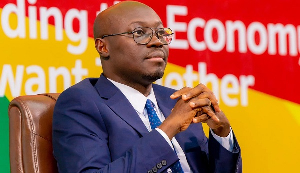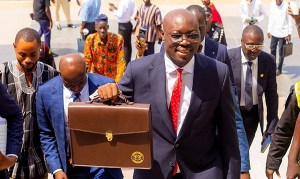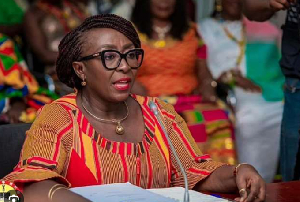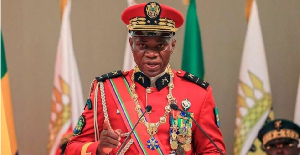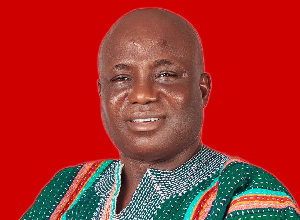ACCRA/WASHINGTON, March 11 (Reuters) - At one of the plushest hotels in one of the world's poorest countries, the Internet's top policy-making body will meet this week to consider controversial plans to reorganize itself.
In Ghana, the Internet Corporation for Assigned Names and Numbers, or ICANN, will vote on a simple issue: Who should oversee a global computer network of 500 million users?
Debate centers on plans that would help boost revenue to support the activities of the nonprofit Internet governing board, but would also decrease direct involvement by regular Internet users.
The proposals have touched off a firestorm among ICANN board members, U.S. lawmakers and countless "cyberspace" activists who say the plans will hand control of the Internet to commercial interests.
Backers of the plans, which include the organization's president and its chairman, say restructuring could lead to a smoother decision-making process by participants who have a direct stake in the system that guides Web browsers and e-mail around cyberspace.
With one proposal up for a formal vote, and a more radical approach looming in the background, decisions made at the Ghana meeting could shape the Internet for years to come.
"ICANN is at the crossroads. If we continue things as they are, it will fail," said Masanobu Katoh, an ICANN board member who represents Asian users.
Michael Froomkin, a University of Miami law professor and prominent ICANN critic, agreed.
"I think this may well be the most important ICANN meeting yet," Froomkin said.
NEW NAMES, NEW FACES
ICANN has overseen several transformations of the Internet's domain-name system since it was set up in 1998 to take control from the U.S. government.
Users can now register domain names with suffixes such as ".info" and ".biz" as alternatives to the crowded ".com" domain. They can buy these names through a variety of domain-name retailers in addition to VeriSign Inc., which under the name Network Solutions Inc. enjoyed a monopoly through most of the 1990s.
But much work still remains to be done. ICANN has failed so far to win over the 245 "country code" operators who oversee popular national Internet addresses like France's .fr or New Zealand's .nz.
Nor has it been able to get assurances of stability from the operators of the 13 master directories that serve as electronic telephone books for the Internet.
And throughout, the organization has faced charges that it makes decisions in an arbitrary manner and bows to the whims of business interests worried more about protecting their trademarks than setting up a fair and usable system.
Activists point to the original ICANN charter, which called for the 18-seat board of directors to be split evenly between those who run the Internet and those who use it.
Five of the nine "at large" seats were filled in a November 2000 election, but the process highlighted the difficulties of running an election open theoretically to anyone on the planet.
ICANN set up a task force a year ago to examine the issue, which recommended that the number of user-elected board seats be reduced from nine to six, and that only domain-name owners be allowed to vote.
After a four-month delay, the ICANN board is scheduled to vote on the proposal this week.
NOT FAR ENOUGH
The task force's plan will face challenges not only from those who say it takes too much away from regular Internet users, but from staffers and board members who believe it does not take away enough.
At a closed-door retreat in Washington three weeks ago, ICANN president M. Stuart Lynn unveiled a proposal that would cut out Internet users from the board entirely.
Lynn proposed reducing the board to 15 members, with five from national governments, five from technical and business groups, and five chosen by a special nominating committee.
The plan would lead to smoother decision-making and solve the organization's financial woes, Lynn said.
Hans Klein, chairman of the activist group Computer Professionals for Social Responsibility, said ICANN's concerns about money were misplaced.
"They paid the study group more than the elections cost, and now they say they can't afford the elections," Klein said. "I don't think governments are going to give us money."
While Lynn's plan is not scheduled for formal consideration in Ghana, it could derail or delay the task-force proposal, leaving no time to prepare for another round of elections scheduled for this fall.
That would likely mean that the five board members elected by regular Internet users would lose their seats and not be replaced, Froomkin said.
Lynn's proposal has prompted one U.S. senator, Montana Republican Conrad Burns, to call for the United States to exert greater unilateral control over the global body.
But Lynn's proposal has already won the support of several board members, including Katoh.
"We need money and I support getting it from governments. If anyone has better ideas, I'll listen," Katoh said.
General News of Monday, 11 March 2002
Source: Reuters


